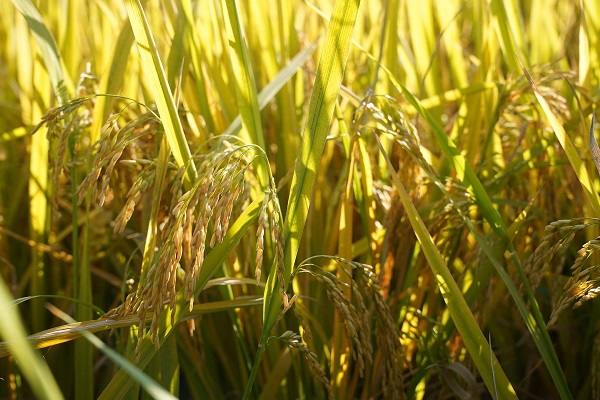Legislative push bolsters vitalization

Photo taken on Oct 11, 2022 shows ripe rice in a paddy field in Nanchang county, East China's Jiangxi province. [Photo/Xinhua]
Improved laws facilitate high-quality agricultural development, grain safety
Chinese legislators have stepped up efforts in promoting legislation concerning rural vitalization and food safety over the past five years to provide a stronger legal basis for driving high-quality agricultural development and maintaining State security, China's top legislature said.
After about three years of research and frequent reviews of drafts, the law on the promotion of rural vitalization was passed by the Standing Committee of the National People's Congress, the country's top legislative body, in April 2021.Two months later, the law came into effect.
Before the adoption, the NPC's Agriculture and Rural Affairs Committee, which created the law, also solicited opinions on various aspects of agriculture, including rural industrial growth and villagers' livelihoods, from many walks of life to ensure public voices could be heard.
As a fundamental and comprehensive law on agriculture, the 74-article document calls for maintaining a vigorous market in rural areas while increasing incomes and living standards of rural residents.
It highlights the importance of talent support, environmental protection and urban-rural integration, and also requires more care and better services to be given to left-behind children, women and old people in rural areas.
To guarantee the implementation of the law, the committee invited seven NPC deputies and officials from grassroots departments to attend a seminar in May 2021, encouraging them to help popularize and explain the new law to rural residents, said He Baoyu, an official from the NPC's Agriculture and Rural Affairs Committee.
While promoting rural vitalization with legislation, the committee has also put grain safety as a top priority, formulating and revising laws in the past five years, as food security is important to all individuals and State security.
To carry out the central leadership's requirements and respond to concerns from deputies, the committee accelerated making a law on black soil in March 2021, aiming to urgently and fully protect the soil that contains a high percentage of humus, phosphorus and ammonia and can produce high agricultural yield with its high moisture storage capacity.
After the draft was reviewed by the NPC Standing Committee three times, it became a law in June 2022 and took effect two months later.
Meanwhile, the committee also played a leading role in amending the Seed Law. The revised law, which was passed in November 2021 and came into effect in March last year, provides more support for innovating and protecting new varieties of plants, with harsher punishments against infringers in this regard.
Moreover, the formulation of a law to guarantee grain safety is in progress. A few issues, including reducing food losses, enhancing food reserves and protecting food facilities, have all been discussed among lawmakers during the draft-making period, said Zhang Fugui, an official from the NPC's Agriculture and Rural Affairs Committee, adding that major suggestions have been put into a draft of the law.
Since 2018, the committee has also intensified inspections on legal implementation, such as those on fisheries, quality of agricultural products and animal husbandry, to check whether the laws worked effectively and what needed to be further improved, Zhang said.

Ministry of Justice of the
People's Republic of China
All rights reserved. Presented by China Daily.
京ICP备13016994号-2


